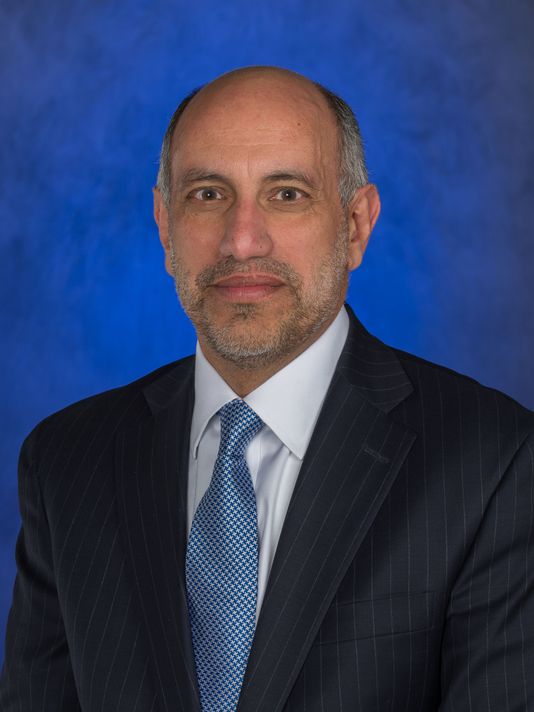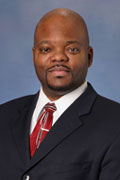For Detroit’s new school board, state still wields the power
After more than year of statewide debate over Detroit’s debt-ridden public schools, this fall’s school board elections are being touted as a return to local control for the district. Scores of candidates will fill the ballot for seven seats that will, unlike the previous board, legally have a role in running the city’s troubled schools.
But the hard reality behind this November’s crowded election is that Detroit’s new school board will only have as much authority as a state-controlled oversight commission is willing to give it.
And so far, the state treasurer’s office, which is responsible for administering the state commission, won’t reveal how much authority or direction it will give the elected board.
“It makes me feel powerless,” said parent Marquita Ashe of the restraints placed on the new board. She said she worries a board with little authority will fail to attract top-quality candidates. “Why would anybody run for this board?” she asked. “I don’t know. I don’t know anything about most of them. It’s like they came out of the blue.”
Under the deal reached in Lansing, the state is providing hundreds of millions of dollars to help pay off district debt. The arrangement calls for the existing, powerless board to be dismissed with the new board to replace it beginning in January. But under the terms of the deal, the new board won’t be able to hire and fire key officials, or make any significant decisions, without approval from the Detroit Financial Review Commission, which is comprised mostly of state appointees.
State lawmakers who approved the deal say that maintaining oversight over the school district, which has faced a cascade of financial scandals for years, is the most prudent way to ensure that its investment in the city’s schools is spent wisely.
Gov. Rick Snyder tried to assuage Detroiters’ fears about the state’s continued role in the city’s schools when he signed legislation to create the new school district. He vowed that the “control will be returned to a locally elected school board,” while acknowledging that the state commission will “monitor the district’s finances to protect taxpayers and students.”
House Majority Leader Kevin Cotter (R-Mt. Pleasant) also spoke optimistically of the new arrangement, calling it “the right plan to save Detroit’s school system from itself and give the children of Detroit a chance at a brighter future.”
But critics counter that the state is replacing Detroit’s failed school system with a new one that does nothing to address declining enrollment, the source of most financial catastrophe, while creating a school board that lacks the power to operate like one.
Give and take
The state passed legislation in June that gives Detroit’s public schools a $617 million aid package. The Detroit Public Schools Community District, as the district will now be known, replaces the former Detroit Public Schools. The new district will have a seven-member board that has more responsibilities than the former board (which was powerless while the district was under a state-appointed emergency manager), but less ultimate authority than typical local boards across the state.
For example, the board elected in November has authority to approve a budget and contracts and hire employees. But key decisions have to be approved by the Detroit Financial Review Commission. Any closings of the city’s lowest-performing schools must be approved by the state. The board can hire a superintendent, but needs approval to fire that person. Contracts that run more than two years or include payments of more than $750,000 must go through the state-controlled commission. So too with union contracts or anything related to the hiring or firing the district’s chief financial officer.
The state Legislature originally created the FRC to oversee the City of Detroit’s finances as part of the “Grand Bargain” -- a 2014 deal that gave the city $816 million in funds from the state, area foundations and others to help resolve pension issues related to Detroit’s municipal bankruptcy.
In extending the FRC’s reach to oversee schools, the district’s board, which has had no role in governing Detroit schools since 2009, was dismissed and a new board election scheduled for Nov. 8. Detroit voters will encounter a ballot with 68 candidates. Until they take office in January, Detroit’s traditional public schools will continue to be run by the state-appointed emergency manager, Steven Rhodes, the retired federal bankruptcy judge who oversaw the city of Detroit’s exit from bankruptcy in 2014.
Breaking down the law
The Detroit Financial Review Commission is overseeing Rhodes’ decisions and so far has held two public monthly meetings on the schools after its city-related public meetings. Its next meeting is set for Aug. 29.
The new board will be elected at-large, not by district, with staggered terms of two to six years depending on the number of votes each board member receives, with top vote getters receiving longer terms.
Board members’ authority will be more limited than typical local school boards in Michigan in the following ways:
- The new board will make academic policy and financial decisions but most financial decisions must be approved by the FRC.
- The state commission must approve the board’s decisions on collective bargaining agreements, the budget, budget amendments, loans and contracts over $750,000 or that have a term of more than two years.
- If the board wants to fire the superintendent, the FRC must approve
- If the board wants to hire or fire a chief financial officer, the FRC must approve
- The FRC must approve all reimbursement to school board members, officials, and employees for travel outside the state.
- The State School Reform/Redesign Officer (SRRO) will create an accountability system for all schools in Detroit, including charter schools, by 2018. As a result, the SRRO can, starting in 2021, order the closure of schools that perform in the bottom 5 percent of state schools for three straight years, or received an “F” rating for three straight years. The school board will have no say in the process.
- The board would need SRRO approval to open a new school within three years in the same building where the state SRRO had closed a school
- The board must evaluate and annually notify administrators of whether their employment will be renewed
- The board cannot consider length of service when determining compensation for teachers or administrators
- The new board can, but is not required to, hire uncertified teachers. That provision does not apply to any other district in Michigan
The state can dissolve the oversight commission if the new district meets certain conditions for balanced budgets.
Bridge Magazine asked Treasury to describe how hands-on the oversight commission will be in monitoring the new Detroit school board. An office spokesperson would only refer Bridge to the parameters of state law.
Ivy Bailey, interim president of the Detroit Federation of Teachers union, which has pushed for the return to an elected school board in Detroit, said she attended the July meeting of the FRC and was impressed with commission members. Bailey recalled that they asked questions that indicated they were on the lookout for wasteful spending.
But she said she doesn’t know how involved the FRC plans to be with the new school board. She said her union expects to negotiate a six-month contract with the the district before school starts this fall, but is unclear what will happen with the contract once the new board takes office in January.
“If the school board says the contract is OK and is willing to extend it for whatever period, my question is, what if the FRC disagrees?” Bailey said. “I need clarification on the hierarchy.”
Lesser standards for Detroit teachers
One of the controversial parts of the new law was the provision that allows the new school board to hire uncertified teachers. That does not apply to any other public school districts in the state. That provision was successfully pushed by charter school and school choice proponents in the package approved in June. A provision to create a separate commission that control openings and closings for traditional schools as well as charter schools in Detroit was gutted, again after strong lobbying efforts by the state’s powerful charter school industry.
Alycia Meriweather, the new district’s interim superintendent, who also has a seat on the state-controlled commission, said the district does not intend to hire uncertified teachers.
Don Wotruba, executive director of the Michigan Association of School Boards, which opposed the limitations placed on Detroit’s new board, said the restrictions are similar to those the state now places on 41 deficit-ridden school districts in other parts of Michigan.
The fact that Detroit’s new board members will not take office until January, the middle of the school year, also makes Detroit unique. The board will enter their posts with yearly budgets and contracts already in place, making it difficult to immediately gauge its effectiveness.
“For the first, year, I would caution against comparisons to other general powers school districts because no other school board starts from scratch in the middle of the year,” Wotruba said.
But Craig Thiel, senior research associate for the Citizens Research Council of Michigan, a not-for-profit public affairs research organization, said new board members shouldn’t expect to gently settle into their jobs in January. In fact, he said, board members could be thrown into a financial fire if student enrollment drops in the fall.
DPS enrollment has declined steeply beyond projections following a series of changes in the way the system has been structured over the years as the state, as well as local board members took turns trying to reverse years of academic decline. When unexpected enrollment drops take place, mid-year budget cuts and layoffs were used to balance the budget, Thiel said.
The turmoil over the past year -- including the public debate about paying off the DPS deficit, the oversight over the new school board and the former school board filing a lawsuit to halt the reform -- likely means that more Detroit families will send their students elsewhere, Thiel said.
“How realistic is that budget now?” he asked.
Who’s running?
Statewide, local school boards have found it difficult to convince people to run for board openings, so the large crop of Detroit candidates could indicate that many of the candidates want to use the board as a platform to oppose further state intervention in the district.
“Clearly (limited authority) didn’t have a chilling effect,” Wotruba said. “The bigger question is, what will happen two years from now when board members are up for election? That will depend on how the FRC and the (new) board interact.”
The list of 68 people on the Detroit elections department’s list of school board candidates as of July 26 shows several retired teachers and principals, at least one current teacher, a former Flint-area superintendent and ten of the 11 former board members who were on the DPS school board when it had no authority.
Candidate Deborah Hunter-Harvill has perhaps had more education-related roles than the other candidates. The former president of the Washington-based National Alliance of Black School Educators, she was a principal in DPS for eight years, a superintendent in Westwood Heights school district in Flint for two years, superintendent in the now-dissolved Buena Vista schools and was president of a DPS charter school board.
The FRC oversight for the school board is an extra layer of checks and balances that can’t hurt as long as the board makes good decisions, she said.
“You have to follow the rules until you prove yourself, until the district is stable, I don’t have a problem with that,” she said.
Lamar Lemmons, a former school board member running for a seat on the new board, said the new law is unclear and leaves the state-controlled commission’s authority open to interpretation. He called it unfair because the oversight will limit the board’s ability to run the district but will leave the board accountable for the results.
“We are being penalized by the state’s actions over the last 17 years when the state ran the district,” he said. “They’re tying our hands then holding us accountable for academic and financial outcomes. We’re being set up to fail.”
Former board members filed a lawsuit to try to block the new law from taking effect. They argue the law creates a local act applicable only to Detroit and therefore under state law required a two-thirds vote of the legislature.
They also argue that the law violates Detroit children’s Constitutional right to equal protection of the law because the new reform law allows only Detroit students to be taught by uncertified teachers.
The next court hearing in the suit is scheduled for Aug. 4, said former board member Elena Herrada.
Herrada, who opposes state intervention, said if the FRC does not like the people who are elected to the board, the FRC could use its oversight to keep the board as powerless as the prior school board. She said she is running to inject institutional knowledge about how the district was run in the past, to monitor the state intervention and to continue to push for an audit.
“A lot of people think the board caused the deficit in DPS. We didn’t have the authority to do that. We can’t lose track of what has been taken, what has been misspent, to keep up with the malfeasance.”
Concerned about the limits
Vertongie Bailey, an employee of the new Detroit school district with two children in its schools, said her biggest concern about the new board’s authority is whether the FRC oversight prevents the board’s decisions from taking immediate effect.
“What if there is an emergency situation?” she said. “The children won’t get what they need because the board can’t make decisions.”
Tonya Allen, president and CEO for the Skillman Foundation, was a co-chair for a community group called the Coalition for the Future of Detroit Schoolchildren that in 2015 created a proposal for reforming DPS, including proposing that the state allow Detroit to have an empowered, elected school board. She said the Coalition opposed the idea of FRC oversight, but said that if the new school board hired the right administrators who make competent decisions then the state commission will not impede progress.
And, Allen added, if the state commission overreaches and neuters the board’s ability to make decisions, the board has the “bully pulpit” to publicly lash out.
“I don’t see this as a toothless board,” Allen said. The new school board is responsible not only for financial decisions but the primary operation of the district: making educational policy and hiring the superintendent. That gives the board responsibility for addressing attendance, social promotion, discipline, and academic rigor, she said.
“There’s great opportunity and promise,” she said of the next board. “There’s also opportunity of peril if (they) don’t focus on the right things.”
See what new members are saying about why they donated to Bridge Michigan:
- “In order for this information to be accurate and unbiased it must be underwritten by its readers, not by special interests.” - Larry S.
- “Not many other media sources report on the topics Bridge does.” - Susan B.
- “Your journalism is outstanding and rare these days.” - Mark S.
If you want to ensure the future of nonpartisan, nonprofit Michigan journalism, please become a member today. You, too, will be asked why you donated and maybe we'll feature your quote next time!


 State Treasurer Nick Khouri is chair of the Detroit Financial Review Commission that oversees the city of Detroit. In June, the FRC started also overseeing the Detroit Public Schools Community District
State Treasurer Nick Khouri is chair of the Detroit Financial Review Commission that oversees the city of Detroit. In June, the FRC started also overseeing the Detroit Public Schools Community District Alycia Meriweather, interim superintendent for the Detroit Public Schools Community District, is on the financial review commission that oversees the district.
Alycia Meriweather, interim superintendent for the Detroit Public Schools Community District, is on the financial review commission that oversees the district. Lamar Lemmons, former Detroit school board member, is running for school board again though the former board is suing to stop the new district from moving forward.
Lamar Lemmons, former Detroit school board member, is running for school board again though the former board is suing to stop the new district from moving forward.